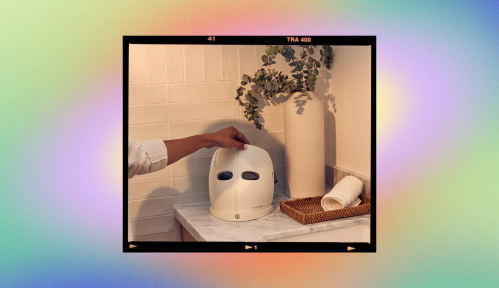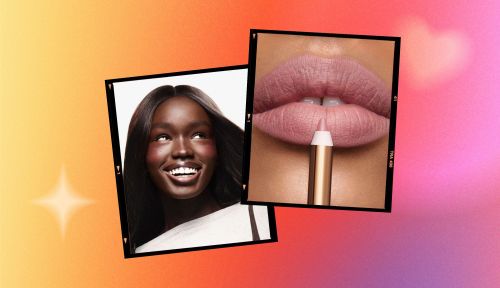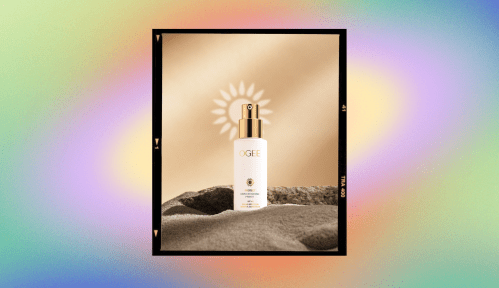Our editors independently select these products. Making a purchase through our links may earn Well+Good a commission
The Secret To Waking Up With Hydrated Skin Every Day When Your Bedroom Is Super-Dry, According to Dermatologists
The skin benefits of sleeping with a humidifier in your bedroom stem from keeping the skin's moisture barrier intact, all night long.
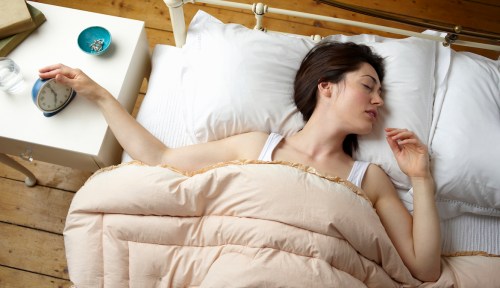
The beauty of a nighttime skin-care regimen is that you can slather on any number of emollient moisturizers or even apply an overnight mask and know that these products will work overtime as you slumber—without the interference of sun, wind, makeup, or anything else that might come into contact with your face during the day. But, if the air in your bedroom is desert-like dry, all of that topical moisture can easily evaporate, taking its hydrating effect right with it. The simplest way to counteract that loss? Sleeping with a humidifier in your bedroom, which benefits skin by helping to keep its moisture barrier intact, whether you supplement it with hydrating products or not.
Experts in This Article
board-certified dermatologist and founder of Skinfluence
board-certified dermatologist at Schweiger Dermatology Group in New York
board-certified dermatologist at Idriss Dermatology, based in New York City
A humidifier works simply by releasing water vapor (aka steam) into the air to up the overall humidity level of a room, which is particularly useful during winter months, when the air is often drier; during hot summer months, if you’re blasting the air conditioning; and in overall drier parts of the country. “By redelivering hydration into the air, a humidifier changes the way your skin responds to the environment,” says dermatologist Shereene Idriss, MD. While skin naturally loses water content in a dry environment, it’s able to retain that hydration more effectively in a humid one, and can even absorb some additional moisture from the air, in that case.
“By redelivering hydration into the air, a humidifier changes the way your skin responds to the environment.” —Shereene Idriss, MD, dermatologist
Essentially, sleeping with a humidifier running keeps that moisture level replenished throughout the whole time you’re in bed, which benefits the skin in more ways than one. “Moisture is essential for proper functioning of the top layer of skin, the stratum corneum,” says dermatologist Nava Greenfield, MD. “Without a moist top layer, the skin cannot perform its most basic function of providing a healthy barrier to protect the body from the outside environment.”
To get specific, in a dehydrated state, skin is more prone to rashes and eczema (both of which can get worse with dryness, too), and because it’s less supple, dry skin can more easily crack, making room for potential skin infections, says Dr. Greenfield. A humidifier supplies the kind of moisture that can help prevent all of the above.
Who is most likely to reap the skin benefits of sleeping with a humidifier?
You won’t be surprised to know that folks with dry, dehydrated, dull, or itchy skin will particularly benefit from sleeping with a humidifier, as they need all the extra hydration they can get, says Dr. Idriss.
But, in fact, people who are prone to acne or breakouts will also notice an improvement to their skin when they run a humidifier in their bedroom at night, according to dermatologist Marina Peredo, MD. “Because the humidifier moistens the skin, oil flows more naturally out of the pores instead of getting trapped inside, which can cause acne,” she says. Not to mention, simply being in an environment sans humidity can trigger additional oil production in the skin, as it attempts to compensate for the dryness, which could make acne worse. And sleeping with a humidifier prevents that frustrating cycle from starting in the first place.
That advice applies all the more to folks living in drier climates and in places that are cold most of the year (aka the northern states as opposed to the southern ones), which tend to have drier air, too, adds Dr. Peredo. But, the big caveat is, if you live in a place that’s hot enough to warrant cranking the air conditioning when you sleep—which dehumidifies the air—your skin could likely stand to benefit from sleeping with a humidifier in the vicinity all the same.
And for everyone else? So long as your space has a humidity level that isn’t above 60 percent (you can measure it with a hydrometer tool), there’s really no drawback. Sleep is an inherently dehydrating process no matter where you’re doing it or what kind of skin you have, according to Dr. Idriss: “As you sleep, the body is stagnant throughout the night, and you’re not hydrating or drinking water as you do during the day.” Given those circumstances, hydration in the air at night “can be game-changing for the skin,” she says.
Shop the humidifiers worth adding to your sleep environment
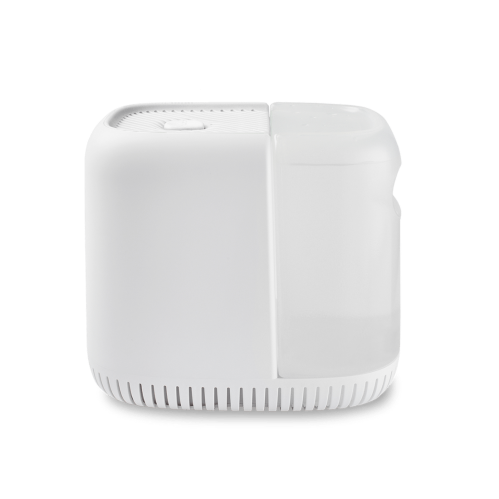
Canopy Humidifier — $150.00
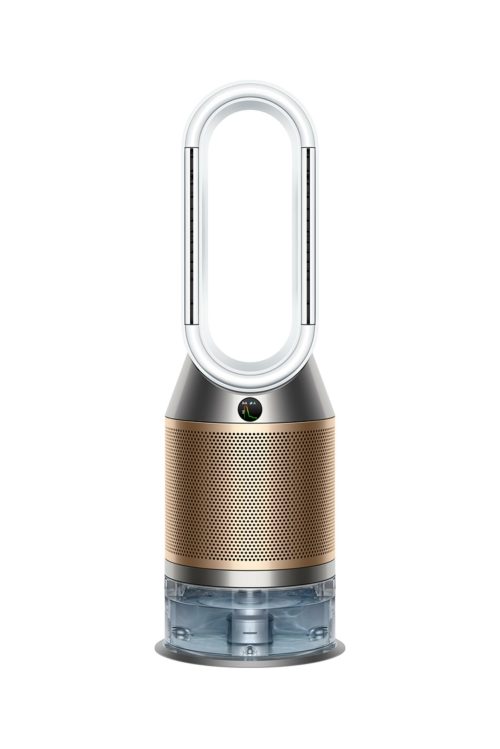
Dyson Purifier Humidify+Cool — $920.00
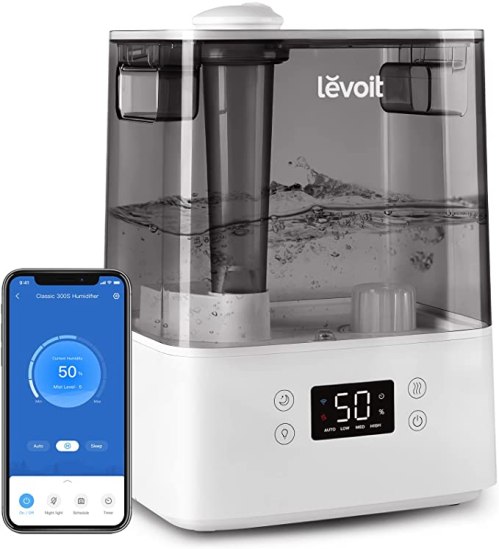
Levoit Humidifier — $70.00
Oh hi! You look like someone who loves free workouts, discounts for cutting-edge wellness brands, and exclusive Well+Good content. Sign up for Well+, our online community of wellness insiders, and unlock your rewards instantly.
Sign up for the Well+Good SHOP Newsletter
Get exclusive deals on wellness, beauty, fitness, and food products that have been hand-picked by our editors.
Got it, you've been added to our email list.

